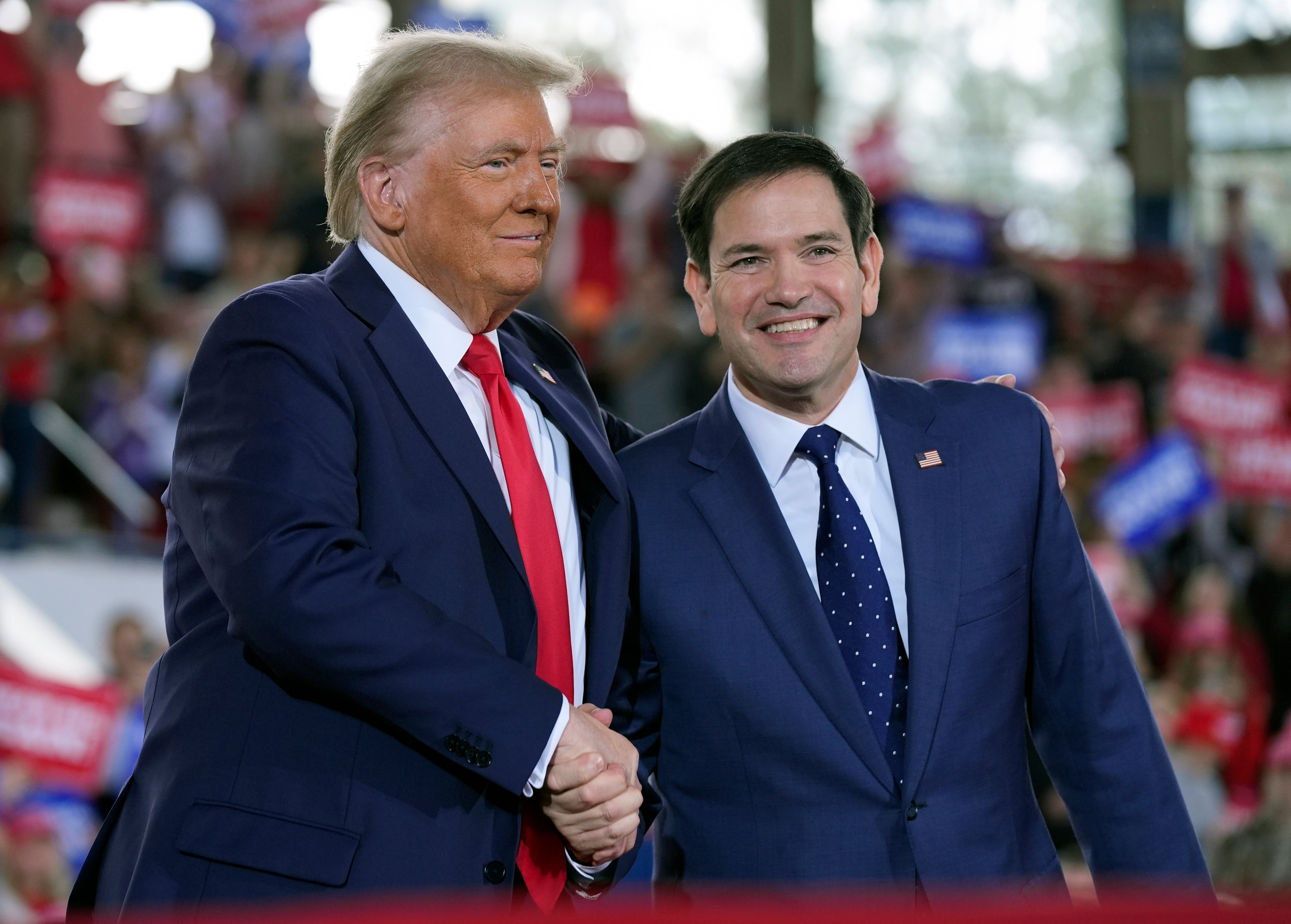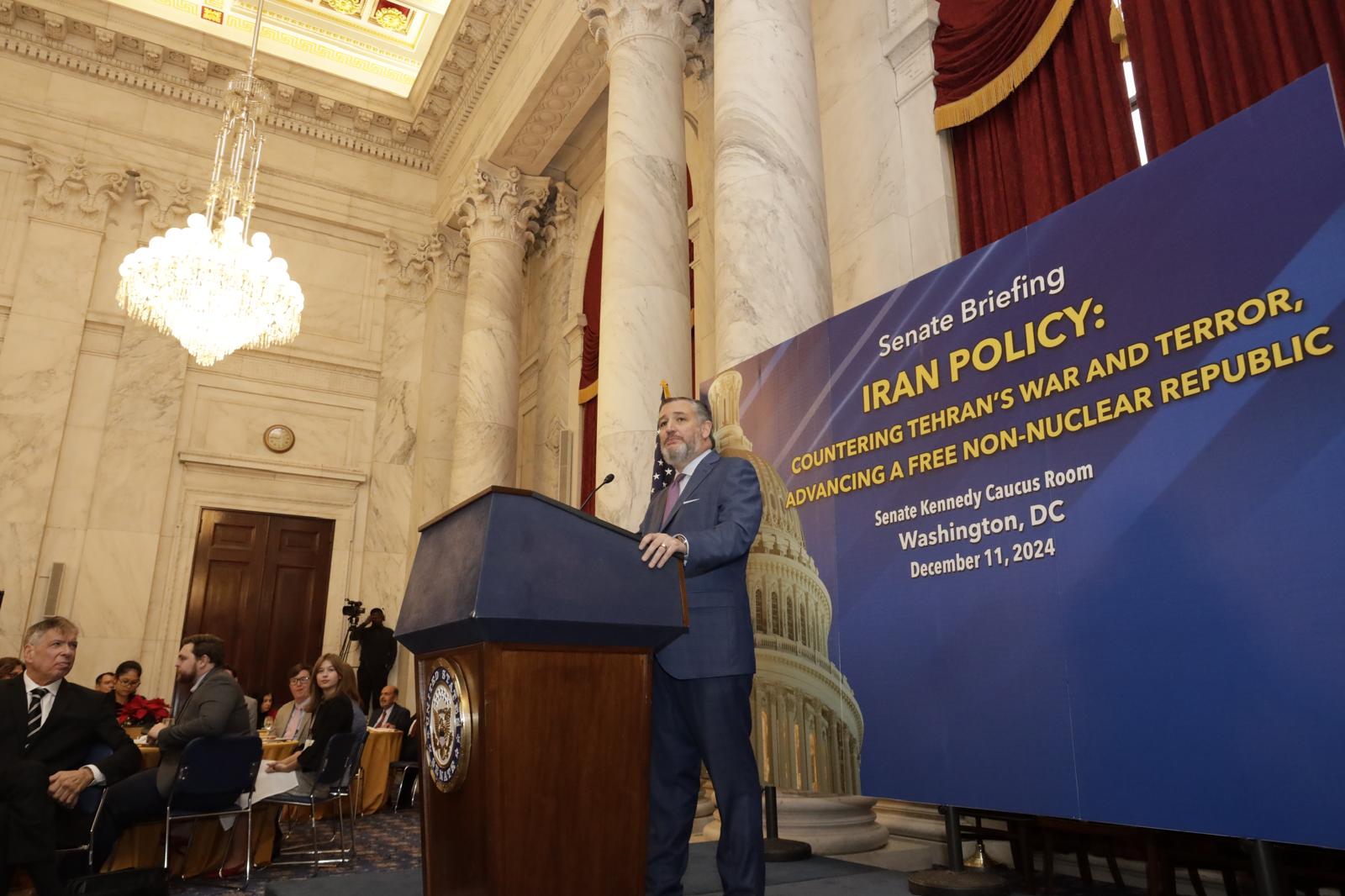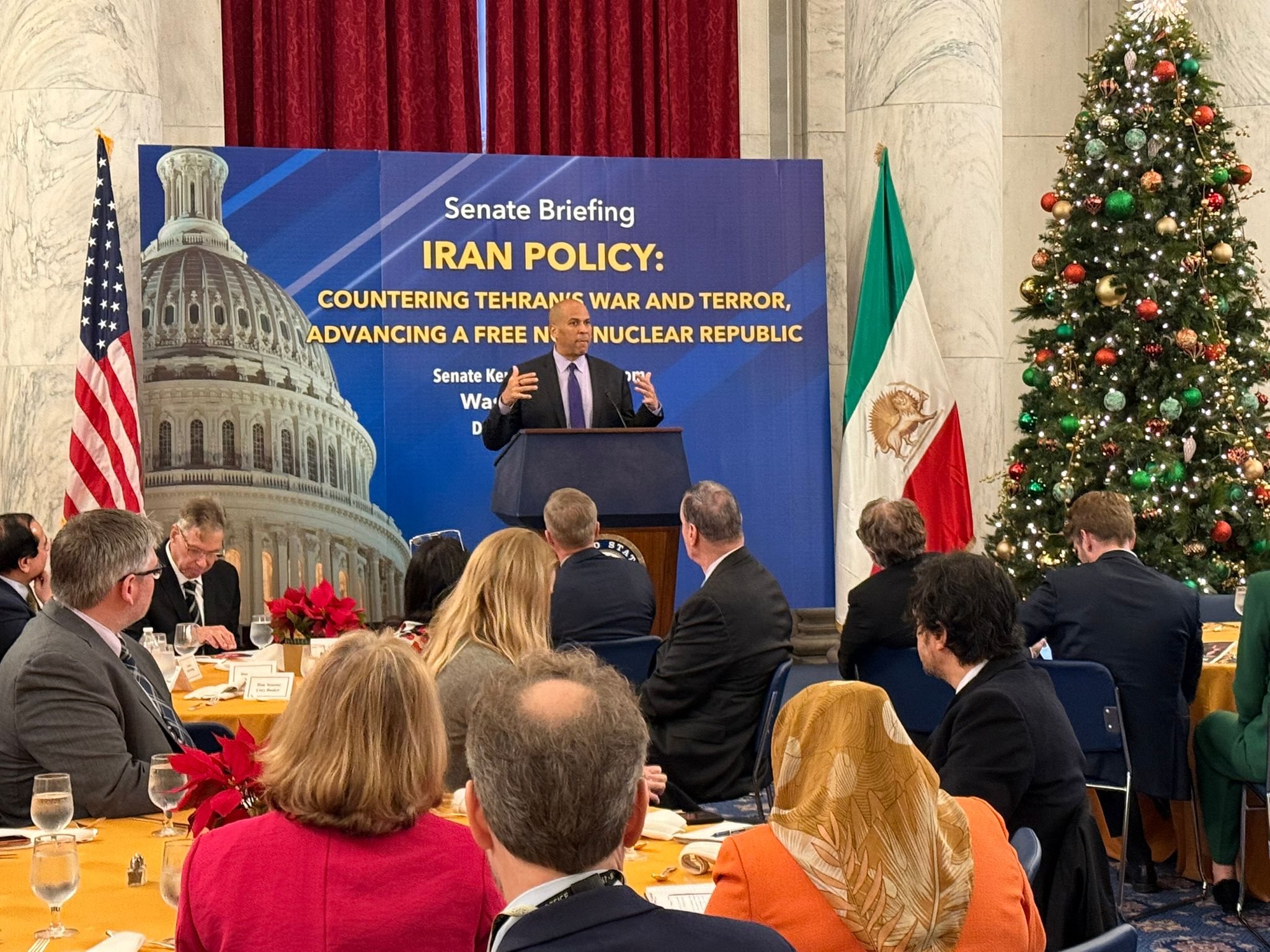Trump is bringing a hawkish Iran policy back in with him
Biden’s visionless Iran policy gives way to a return to ‘maximum pressure’

Your support helps us to tell the story
From reproductive rights to climate change to Big Tech, The Independent is on the ground when the story is developing. Whether it's investigating the financials of Elon Musk's pro-Trump PAC or producing our latest documentary, 'The A Word', which shines a light on the American women fighting for reproductive rights, we know how important it is to parse out the facts from the messaging.
At such a critical moment in US history, we need reporters on the ground. Your donation allows us to keep sending journalists to speak to both sides of the story.
The Independent is trusted by Americans across the entire political spectrum. And unlike many other quality news outlets, we choose not to lock Americans out of our reporting and analysis with paywalls. We believe quality journalism should be available to everyone, paid for by those who can afford it.
Your support makes all the difference.With the end of Joe Biden’s administration on the horizon, American foreign policy is in flux.
Donald Trump, the president-elect, remains in Mar-a-Lago for now, but even without a presidential seal behind him has taken to holding discussions with world leaders beyond the typical congratulatory calls which occur in the post-election period.
And it’s increasingly becoming clear that US-Iran policy will be an arena where one of the biggest shifts in the US’s posture will occur. A Wall Street Journal report in November unveiled the discussions underway about “maximum pressure 2.0” — a return to an updated version of the hardline policy platform the first Trump administration deployed against Iran with the expressed intention of cutting off the country’s nuclear program and weakening its government and state economy.
The plan was also aimed at countering Iran’s support for armed militant groups around the Middle East, an effort which continued into the final days of the controversy-laden first Trump presidency. In January of 2021, just days before Trump left office, his administration designated the Yemen-based Houthi rebel group a Foreign Terrorist Organization (FTO).
That decision was short-lived, however, as incoming president Joe Biden reversed the designation almost immediately upon taking office.
Biden’s own Iran policy was muddled for the entirety of his four years in office. The most clarity the US president himself gave on the matter came on a ropeline comment to a supporter in November of 2022, when he admitted that the 2015 Iran deal signed under the last Democratic administration was “dead” and not coming back. US-Iran relations had few developments until October 7, 2023, when it largely shifted to public and private warnings against direct Iranian aggression against Israel.
A return to a “maximum pressure” policy will mean confronting Iran both directly and indirectly, through the marginalization of groups like the Houthis that allegedly receive support from the Iranian Revolutionary Guard (IRGC) and other organizations. The Houthis face an inevitable FTO redesignation and a renewed focus by the Trump administration, with Hezbollah in a severely weakened state due to the US-backed Israeli assault on Lebanon. Hamas, meanwhile, is due to face an Israel soon to be wholly unrestrained by its US backers.
Senator Ted Cruz, an ally of the incoming president whose own foreign policy views trend slightly more traditionally conservative, said last week that the first priority of US’s Middle East policy must be to “not simply [reach] an end to the conflict. It is Hamas being utterly and completely defeated. And that is exactly what I believe will happen [under Trump], and that is an enormous blow to Iran as well.”

Cruz spoke to The Independent briefly as he departed a briefing sponsored by the Organization of Iranian American Communities (OIAC), a group aligned with an international network of Iranian dissidents and exiles. Maryam Rajavi, the president-elect of the network known as the NCRI, spoke to the gathering of lawmakers and Senate staffers on Wednesday (Dec 11).
That briefing was attended by a spectrum of senators ranging from right-wing to center-left, including two Democrats: Jeanne Shaheen and Cory Booker. With just a handful of senators, the grouping revealed how the full ideological range of the traditional Washington foreign policy consensus (which has never included progressives) seems eager to return to the aggressive posture against Iran emblemized by Trump’s first term. Many of the speakers touched on the presumed strategic blows suffered by Tehran with the fall of Syria’s government and the Israeli killing of Hezbollah leader Hassan Nasrallah.
Trump may satisfy that consensus — and go beyond it — when he comes to power in January. The Wall Street Journal separately reported this week that the Trump team is weighing the possibility of direct military action to strike Iranian nuclear and weapon production facilities, something that has long been seen as the last-ditch option for preventing Iran’s theocratic autocracy from obtaining a nuclear missile.
At least part of that shift in policy comes from the president-elect’s own anger resulting from news that the federal government thwarted an Iranian plot to assassinate him this year, Trumpworld insiders suggested to the Journal.
Whether direct military action is on the table remains to be seen, but what is certain is that the incoming administration will put the squeeze back on Tehran. Despite the State Department’s denials, many international Iran experts agree that the Iranian government has found ways around US sanctions on its oil sales under the Biden administration, causing Republicans to accuse the White House directly of ignoring enforcement of US law as a matter of policy. Trump’s team will likely search for ways to ramp up enforcement of existing sanctions while slapping new ones into place.
Rajavi, the NCRI’s president-elect, spoke to the gathering via video conference from Paris. Her remarks were nonpartisan but predicted that IRGC forces in Iran would, like Assad’s forces, “mel[t] like snow under the summer sun” and declared that the Iranian government was “the strategic loser of the war it started” with its backing of Hamas in Gaza.
Sam Brownback, the former Trump administration ambassador at-large for religious freedom, also spoke at the briefing. In an interview with The Independent, he confirmed that he believed resuming sanctions pressure and political isolation of Tehran would provide the catalyst needed for such a civilian uprising in Iran to occur.
“It has to have a political component to it,” said Brownback. ”I mean, we backed solidarity quietly, but we backed it. We need to back the people, the groups, that opposed the regime in Iran publicly, we need to say: These are freedom fighters. We support you.”
Other senators who were at the briefing on Wednesday described the fall of Bashar al-Assad’s government in Syria as having a similar effect against Iran as did the hollowing out of Hezbollah under the last few months.
“What Iran has lost right now is their influence with an oppressive leader, [and] to use [Syria] as a land bridge to supply some of the most awful terrorists with resources and funding,” Booker, who had described Iranian-American dissidents in the briefing as his “family”, said to a handful of reporters as he headed to votes.

Shaheen, another Democrat, added in her prepared remarks: “Iran has been dealt a significant blow. Their leadership…is on their back feet. The events in Syria demonstrate the fundamental weakness at the core of Iran’s regional strategic policies.”
She added to reporters afterwards that she and other Democrats would likely be able to work with the incoming administration on policies aimed at countering the regional influence of Tehran.
The Biden administration made little progress on the issue of reaching a diplomatic resolution to the ongoing question of Iran’s nuclear weapons program, which the US maintains it will stop at all costs.
That fact, combined with the accelerated pace at which the Trump team is engaging with US partners abroad, makes it increasingly clear that Washington is moving on from an administration whose stewardship of the Middle East receives mixed reviews even on the left.
Join our commenting forum
Join thought-provoking conversations, follow other Independent readers and see their replies
Comments